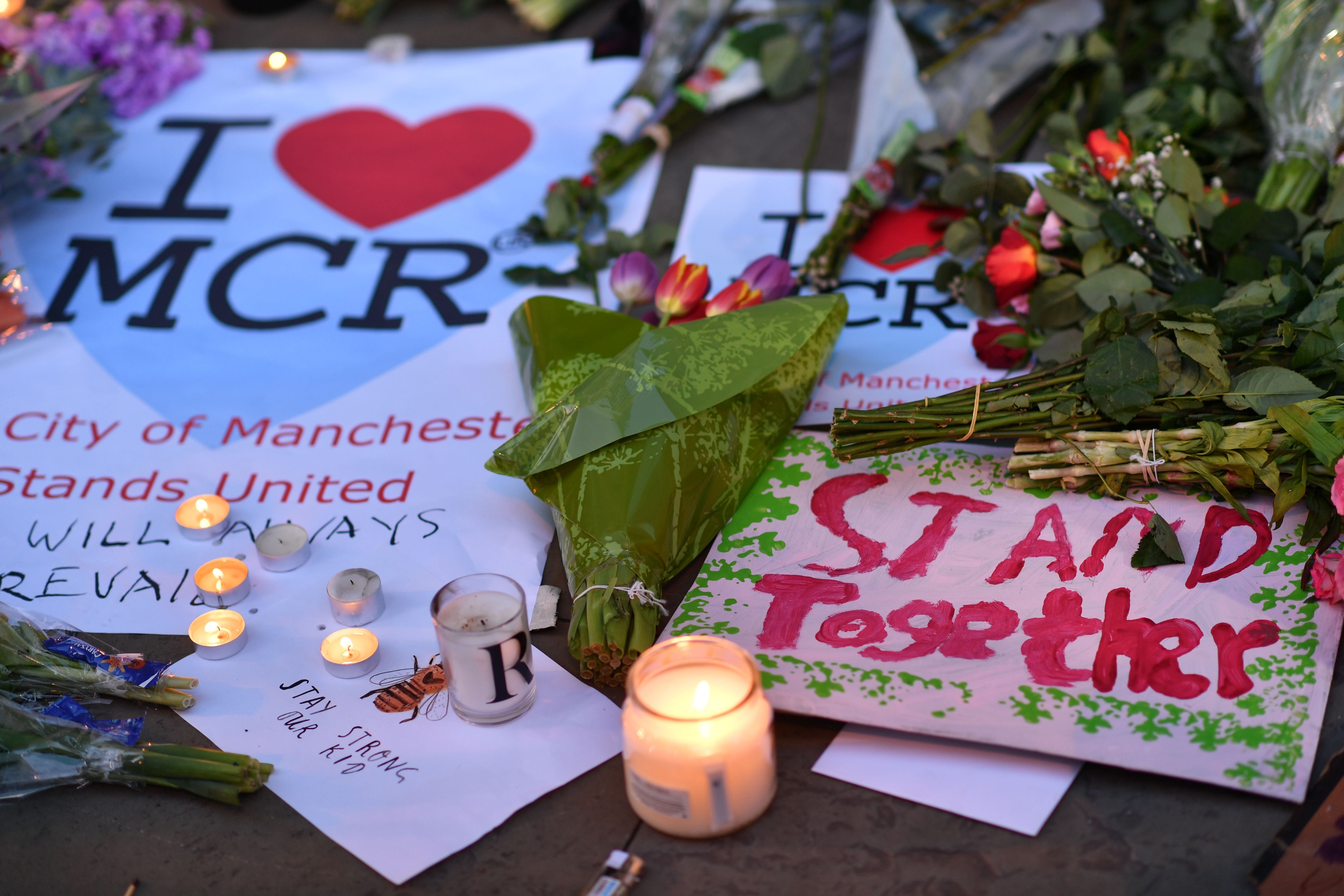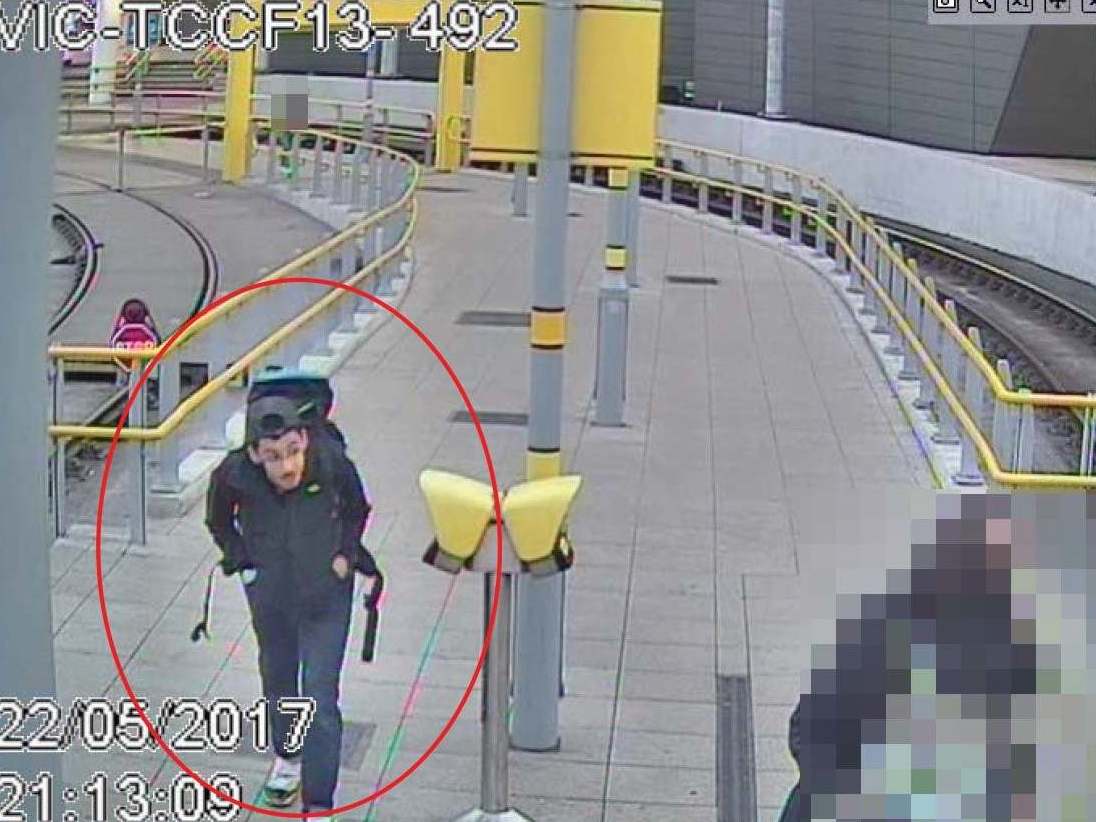MI5 did not pass ‘highly relevant’ intelligence to police before Manchester Arena bombing
Salman Abedi had initially been made an MI5 ‘subject of interest’ in 2014 but was not thought to be a security threat

Your support helps us to tell the story
From reproductive rights to climate change to Big Tech, The Independent is on the ground when the story is developing. Whether it's investigating the financials of Elon Musk's pro-Trump PAC or producing our latest documentary, 'The A Word', which shines a light on the American women fighting for reproductive rights, we know how important it is to parse out the facts from the messaging.
At such a critical moment in US history, we need reporters on the ground. Your donation allows us to keep sending journalists to speak to both sides of the story.
The Independent is trusted by Americans across the entire political spectrum. And unlike many other quality news outlets, we choose not to lock Americans out of our reporting and analysis with paywalls. We believe quality journalism should be available to everyone, paid for by those who can afford it.
Your support makes all the difference.MI5 failed to pass on two “highly relevant” pieces of intelligence to counter-terror police in the months leading up to the Manchester Arena bombing, a public inquiry has heard.
A previous review revealed that MI5 did not appreciate the significance of the intelligence at the time, but in retrospect it was “highly relevant” to Salman Abedi’s plans.
Detective Chief Superintendent Dominic Scally, head of Counter Terrorism Policing North West, said neither piece of intelligence was given to his officers.
Sir John Saunders, chair of the inquiry, has ruled that details could not be made public and will be heard in closed sessions of the public inquiry, where families, their lawyers and the media will be excluded for reasons of national security.
A review conducted by Lord Anderson QC, which was published in December 2017, had said: “On two separate occasions in the months prior to the attack, intelligence was received by MI5 whose significance was not fully appreciated at the time.
“It was assessed at the time to relate not to terrorism but to possible non-nefarious activity or to criminality on the part of Salman Abedi. In retrospect, the intelligence can be seen to have been highly relevant to the planned attack.”
On Tuesday, the inquiry heard that MI5 also failed to take action that would have seen Abedi stopped by police when he returned from Libya days before the attack.
He flew back into the UK alone on 18 May 2017 - four days before he launched the suicide bombing - but was not stopped on his return to Manchester Airport.
An MI5 officer who can be named only as Witness J admitted that police could have apprehended the terrorist under terror laws, questioned him and seized his electronic devices.
The stop would have been under Schedule 7 of the Terrorism Act 2000, which empowers police to determine whether people passing through borders may be involved in terrorism, and is frequently used to gather intelligence and disrupt suspected plots.
Pete Weatherby QC, representing some of the bereaved families, said a “port stop” could have revealed Abedi’s plans and led police to the car he had used to store bomb components.

The inquiry heard that there had been an emerging “cumulative picture” as Abedi, several family members and associates cropped up numerous times in intelligence gathered by police and the security services.
Ramadan Abedi, the bomber's father, was subjected to two port stops under terror laws in 2011, while his young son was with him, and he had reported links to banned extremist organisation the Libyan Islamic Fighting Group.
Two years later, in December 2013, Abedi was first investigated due to an association with a “subject of interest” (SOI) of MI5, and was himself made an SOI in March 2014.
In July 2014, the probe was closed and he was deemed a “low” residual threat.
A month later, Abedi and his younger brother and fellow plotter, Hashem, were rescued by HMS Enterprise as both were British nationals evacuated from war-torn Libya.
The would-be terrorist went on to be in contact with eight SOIs, discovered during intelligence gathering on other suspect individuals, the inquiry has heard.
His older brother, Ismail, was found to have “utterly abhorrent” Isis propaganda on his phone during a port stop and Abedi visited a jailed terrorist in prison twice.
The area of Manchester in which he lived had been identified in a report by the Joint Terrorism Analysis Centre as having a potential issue with young men at risk of radicalisation.
MI5 did not attempt to refer Abedi to the Prevent counter-extremism scheme at any stage despite his proximity to suspected Isis supporters, the inquiry heard.
Det Ch Scally will continue to give evidence on Thursday.
Additional reporting by PA


